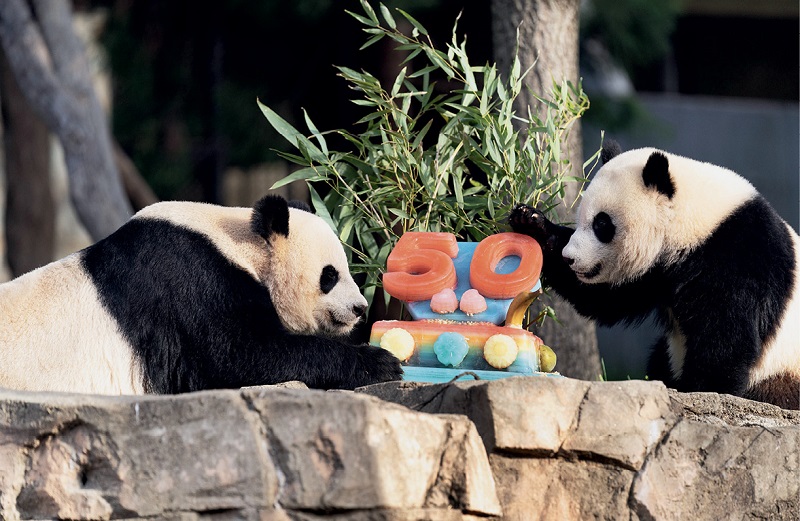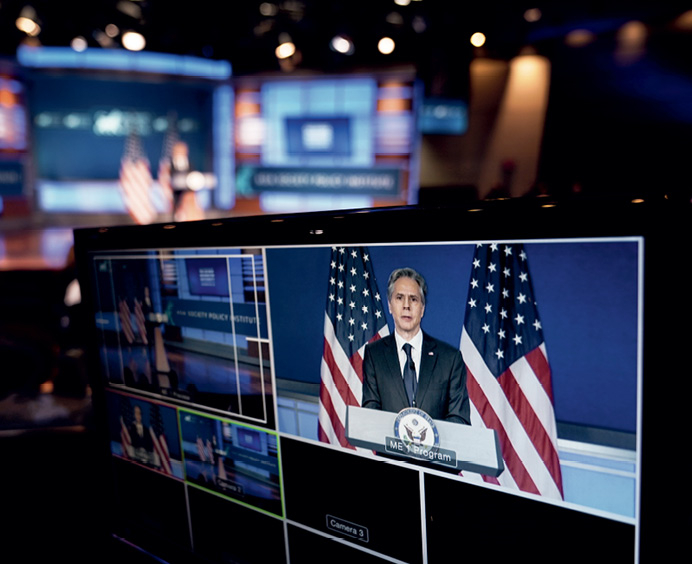The year 2022 proved to be a turbulent one for U.S.-China relations. The assumption of power by the Biden administration in January 2021 was viewed with some optimism after the rollercoaster ride of the Trump administration – waxing hot and then cold – toward the People’s Republic of China. Biden rejected Trump’s chauvinistic “America First” policy, but instead adopted a policy of gathering “Western democracies” in a united front against China’s growing global influence. There was always the underlying view that the dramatic growth of the Chinese economy and the subsequent growing political influence of China in global affairs was a threat to the system in which the Western liberal democracies, headed by the U.S., set the rules for the world.
With the initiation of the Belt and Road Initiative in 2013, China showed that it wanted to move the world to a policy of development through a massive program of infrastructure with a focus on transportation infrastructure in particular. Initially this was viewed without great concern by the West. European countries, in fact, benefited greatly from the BRI with a tremendous turnover of trade between East and West along the new rail lines being built. Even in the U.S., there was some low-level discussion about cooperation with China in the BRI. But all of that changed quickly when President Trump, overwhelmed by the COVID-19 epidemic and concerned about the growing stagnation in the U.S. economy, began to scapegoat China on both these issues, and initiated a trade war with the P.R.C. Despite their differences over many issues, President Biden did little to let up on these policies when he came into office.
In October 2022, the White House issued its National Security Strategy (NSS), confirming the Biden narrative of an open rivalry between “democracies” and “autocracies.” The documents also used Russia’s military actions in Ukraine – which were in response to continued Western disregard of Russia’s security needs in its neighborhood – to describe Russia and China in belligerent terms. Of most concern for the U.S. was the explicit desire by both China and Russia to create a system of collaboration between nations rather than the present one ruled by the unipolar dictates of the Western elites, i.e. the Anglo-Americans.
Also on the ground, the U.S. was increasing its “freedom of navigation” forays in the South China Sea and in the Taiwan Strait. And after a flurry of visits to Taiwan by U.S. congressmen and by former Secretary of State, Mike Pompeo, to shore up support for Tsai Ing-wen and her independence agenda, House Speaker Nancy Pelosi, second-in-line for the presidential succession, decided in August to make her own trip to Taiwan, upping the ante in the provocations against China by a high-level official.

Giant pandas Mei Xiang, left and her cub Xiao Qi Ji enjoy eating a fruitsicle cake in celebration of the 50 years of achievements made by the Smithsonian's National Zoo and Conservation Biology Institute in the care, conservation, breeding, and study of giant pandas at the Smithsonian's National Zoo in Washington D.C., on April 16, 2022.
China responded to this provocation, a direct challenge to the one-China principle, by a massive military maneuver on the east coast of Taiwan with naval, air, and ground forces. While the military maneuvers were trumpeted as “aggressive moves” by Western pundits and the media, the seriousness of the Chinese reaction to the Pelosi visit did not go unnoticed by the Biden administration, which sought a way to “ratchet down” the growing tensions.
Arrangements were therefore made for President Biden to meet President Xi Jinping in Bali, on the sidelines of the G20 Summit which both leaders would be attending. The lengthy three-hour meeting led to a renewed commitment by the U.S. to adhere to the one-China principle, with President Biden asserting a commitment to “Five Noes” that the U.S. is not seeking a new Cold War; not seeking to change China’s system; that its revitalization of its alliances is not aimed at China; nor does the U.S. support “Taiwan independence;” and it does not look for conflict with China. The meeting helped to restore some confidence in the Chinese side that the U.S. was not gearing up for conflict with China. Nevertheless, the Chinese side would remain wary, given the atmosphere created by those forces pushing the “China threat” theory, and would carefully watch the subsequent steps taken by the U.S. with regard to China.

U.S. Secretary of State Antony Blinken is seen on a monitor as he speaks at George Washington University in Washington, D.C. on May 26, 2022, outlining the administration's policy toward China at an event hosted by the Asia Society.
At the same time, 2022 also proved to be a year of growing confidence in China about the path that had been determined by the Communist Party of China (CPC) for China’s rejuvenation and overall modernization. The 20th CPC National Congress in October was something of a watershed moment, where the path laid out by the Xi Jinping Thought on Socialism with Chinese Characteristics for a New Era was clearly vindicated as the correct path for China’s modernization, and as a path which would inevitably lead to success. In addition to this ground-breaking event, there were a series of diplomatic initiatives centered around President Xi’s successful heads-of-state diplomacy, where he met with the leaders of many nations during the latter half of the year, consolidating international support for China’s role in the world.
In September, President Xi traveled to Samarkand to attend the SCO Summit. In November, in addition to the G20 where he met personally with President Biden and other world leaders, and later also attended the APEC Summit in Bangkok. Then in December, he traveled on a state visit to Saudi Arabia, where he also attended the China-GCC Summit, and launched the first China-Arab Countries Summit. On the latter occasion, he met with dozens of Arab leaders attending the conference. President Xi’s proposal for a Global Development Initiative in 2021 was met with greater support this year from many nations. And his proposal for a Global Security Initiative in April of 2022 could open up a pathway for resolving the military conflict in Ukraine.
While the U.S. blindly sticks to its self-defeating policy to restrict the export of hi-tech products from the U.S. (and other countries) to China, China continues to make steady progress in the area of high tech. The year 2022 saw the completion of construction of the Chinese Space Station, and the year when China’s EAST fusion reactor set a new world record. And while the U.S. tries to prevent the export of the most modern semiconductors to China, Chinese engineers and scientists are hard at work to create their own domestic production of the highest level of semiconductors. Other countries, including the Republic of Korea, are also not terribly inclined to adhere to a ban on semiconductor export to one of their biggest customers in the world – the Chinese market. In 2022, China also held a very successful Winter Olympics.
While the unipolar world is still orbiting in the sphere of influence of Anglo-American elites and some of their allies, the rest of the world is marching in a different direction. This more than anything will instill among the Chinese people the confidence that the road they have chosen is best for China – and best for the world. It is to be hoped that the U.S. and the Western nations will also realize that the opportunity offered by China in its proposal for building a community of shared interest for mankind would allow the world to move away from the geopolitical status quo of “proxy wars” and “rivalry” to a policy based on cooperation between nations. This would also facilitate them in creating better conditions of life for their own people as well.
WILLIAM JONES is the former White House correspondent for EIR News Service and a non-resident fellow of the Chongyang Institute for Financial Studies at Renmin University of China.